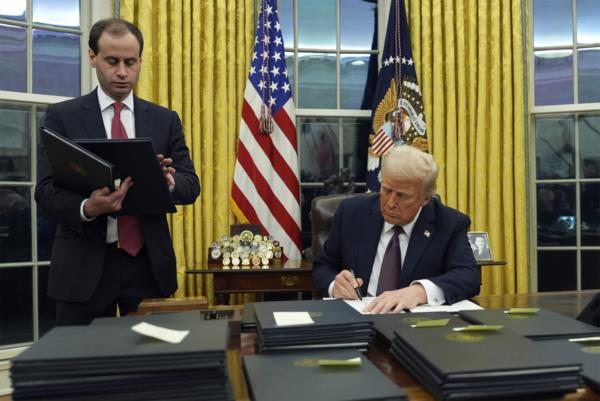
An executive order signed by President Donald Trump on his first day back in office has introduced a new federal government definition of sexes that could have significant implications for transgender individuals across the country. The order mandates that sex be defined strictly as male or female on official documents like passports and in policies such as federal prison assignments. However, the exact implications of this directive on federal spending remain unclear and are likely to face legal challenges.
Defining Male and Female Based on Conception Cells
The order asserts that there are only two sexes, male and female, rejecting the idea of transitioning between genders or identifying as nonbinary or intersex. This stance contradicts mainstream medical groups like the American Medical Association, which view sex and gender as a spectrum rather than binary categories. The order's unconventional definition of sexes is based on reproductive cells present at conception, a notion that biologists argue is scientifically inaccurate.
Implementation and Impact
While the order has been signed, much of its enforcement requires further federal action. Federal agencies have been directed to comply with the order within 120 days, with some aspects potentially necessitating regulatory processes or new legislation. The order does not alter existing laws but serves as a policy guideline for the administration's stance on transgender issues.
Implications on Federally-Issued Documents and Prisons
The order mandates that federally-issued documents like passports align with the administration's sex definitions. It also outlines specific guidelines for transgender inmates in federal prisons, including housing transgender women in men's prisons and halting gender-affirming medical care. Court orders granting inmates access to treatment remain valid despite policy changes.
Medicaid Coverage for Gender-Affirming Care
The order's impact on Medicaid coverage for gender-affirming care remains uncertain, particularly in states where such coverage is offered. Any changes to existing coverage would likely involve a lengthy process and face legal challenges.
Overall, the executive order's redefinition of sexes and its implications for the transgender community are poised to spark legal debates and challenges in the coming months.







